Stay Informed
Popular Articles
- Hiatal Hernia: Hidden Cause of Chronic Illness
- Small Intestinal Bacterial Overgrowth (SIBO)
- Applied Lymphology: Unlocking the Secret to Pain Relief
- An Introduction to Constitutional Iridology
- The Low Down on Liver Detoxification
- An Energetic and Emotional Approach to Cancer
- Fat Facts
- Marrow in the Bones
- Blood Type and Nutrition
- Cardiac Herbs: Beyond Hawthorn
Quick Search
The School of Modern Herbal Medicine




Don't Catch a Cold, Catch Good Health
- 11/15/2016
- Categorized in: General Health
 Playing “catch” with a ball is fun. When we find that special person, we often refer to him or her as a good “catch.” It’s even fun to “catch” a good movie or play, but it’s no fun to catch a cold, flu, or other infection.
Playing “catch” with a ball is fun. When we find that special person, we often refer to him or her as a good “catch.” It’s even fun to “catch” a good movie or play, but it’s no fun to catch a cold, flu, or other infection.
Ever since Louis Pasteur advanced the germ theory of disease, people have been killing microbes in an effort to avoid contracting infection. While cleanliness and sanitation are helpful, people seem to forget that the body is designed to be naturally resistant to infection. Out of irrational fear, people spend more time and effort trying to kill germs than they do trying to “catch” health by keeping their immune system strong.
The misplaced emphasis on killing germs can have serious negative effects on health. For starters, the overuse of antibiotics in treating contagious disease has resulted in the weakening of people’s immune systems. Antibiotics kill the friendly microbes in our intestines known as probiotics. These probiotic microbes are a key component of our immune system because they inhibit the growth of harmful bacteria and yeast.
When intestinal probiotics are destroyed yeast begin to proliferate, which impairs immune function and makes us more susceptible to infection. Imbalances in these friendly microbes can also lead to inflammatory bowel disorders and allergic reactions.
In the past two decades antibacterial soaps, wipes, creams and hand sanitizers have become widely popular for killing germs. The active chemical in these is triclosan. More recently, triclosan has been added to cutting boards, refrigerator shelves, plastic lunchboxes and mattresses in an attempt to halt the spread of microbes. But studies show that triclosan is no more likely than regular soap to prevent respiratory or gastrointestinal infection. In fact, it can actually increase the frequency of fevers, runny noses and coughs in people who are chronically ill. How can this be?
Triclosan kills weak bacteria but favors the tolerant. Some of these tolerant bacteria actually eat triclosan. Triclosan may also favor strains of bacteria that are resistant to the antibiotics used in hospitals. Additionally, health officials have expressed concerns about its potential impact on human health. For instance, triclosan has been detected in human breast milk, blood, and urine samples. In a study on the effects of triclosan on female rats, the chemical was found to advance the onset of puberty and to suppress thyroid hormone concentrations. To summarize, triclosan is largely ineffective, a potential threat to human health, and a bioaccumulative pollutant.
Additionally, research shows that children who are raised in homes where a lot of disinfectants are used actually have weaker immune systems. They are more prone to asthma and allergies, and less resistant to infections if they actually get one. It appears that our immune system needs to be exposed to at least some level of microbes in order to learn how to fight infection and keep us healthy.
Fortunately, there is a better way to stay healthy without succumbing to germophobia. We can use herbs and nutrients to strengthen our immune system. Using these remedies during the cold months of winter is like coating yourself with a microbial non-stick surface. Even if you are exposed to some “bug,” it’s likely to “slide off” of your healthy immune system, allowing you to stay well when others around you are sick.
In this article we’ll provide you with a list of remedies you can use to catch health this winter instead of sickness. When combined with good hygiene and general health practices, these remedies will help you dodge, rather than catch, whatever infections come your way.
Immune Enhancing Herbs and Nutritional Supplements
.jpg) Modern medicine does not offer immune boosting medications. Only nature provides us with substances that strengthen our natural immune responses. Immune enhancing herbs and nutrients put your immune system on “red alert,” ready to ward off infection. They can also be used to speed recovery if you succumb to an infection. These remedies are the principle ingredients in the immune formulas discussed in this article.
Modern medicine does not offer immune boosting medications. Only nature provides us with substances that strengthen our natural immune responses. Immune enhancing herbs and nutrients put your immune system on “red alert,” ready to ward off infection. They can also be used to speed recovery if you succumb to an infection. These remedies are the principle ingredients in the immune formulas discussed in this article.
Echinacea
Due to the large body of scientific research documenting its ability to stimulate the 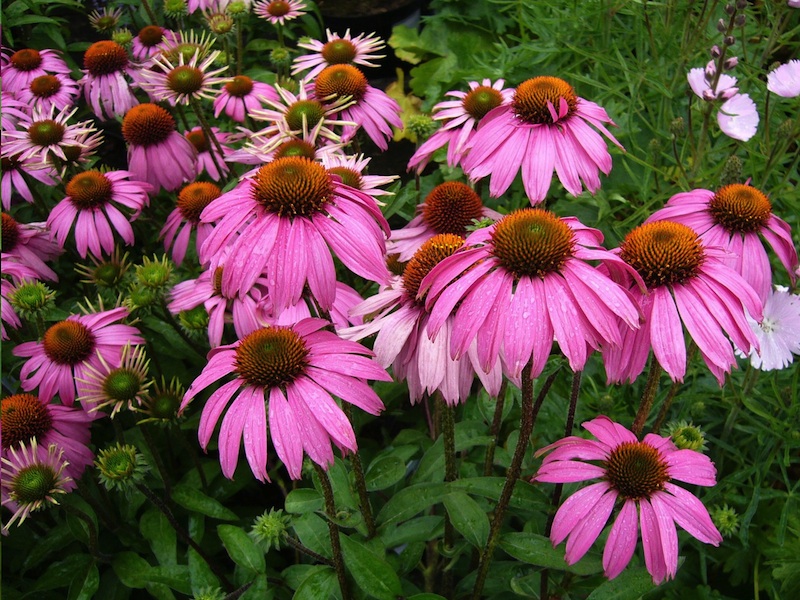 immune system and help the body fight infection, Echinacea is one of the most popular herbs in America today. It is able to stimulate the immune system because it contains polysaccharides (complex indigestible chains of sugar molecules) that resemble bacteria. The immune system responds to these harmless compounds as if it is being invaded by something dangerous, increasing the number of phagocytes and macrophages (white blood cells that destroy infection). Echinacea contains other compounds that inhibit the spread of infection and have antimicrobial actions, making it an outstanding herb for preventing and treating infections.
immune system and help the body fight infection, Echinacea is one of the most popular herbs in America today. It is able to stimulate the immune system because it contains polysaccharides (complex indigestible chains of sugar molecules) that resemble bacteria. The immune system responds to these harmless compounds as if it is being invaded by something dangerous, increasing the number of phagocytes and macrophages (white blood cells that destroy infection). Echinacea contains other compounds that inhibit the spread of infection and have antimicrobial actions, making it an outstanding herb for preventing and treating infections.
Echinacea is commonly used to both prevent and treat the common cold. When colds and flu are “going around,” it’s a great remedy to take to stay healthy. It has been used successfully in treating acne, boils, Epstein-Barr virus, gangrene, malaria, meningitis, strep throat, tonsillitis and infected wounds. Echinacea is a good choice for intermittent or low-grade fevers, toxemia, blood poisoning, swollen lymph nodes, and a weakened immune system that makes a person easily prone to infections.
Echinacea is available as a single herb in capsules or liquid form. There are also three species, namely Echinacea purpurea, Echinacea angustifolia, and Echinacea pallida. Formulas that combine more than one species tend to provide the synergistic benefits of each type for greater effectiveness. The effects of echinacea last about two hours, so it is important to take doses at two-hour intervals for maximum effectiveness when fighting an infection. For prevention, it can be taken two or three times daily.
Astragalus
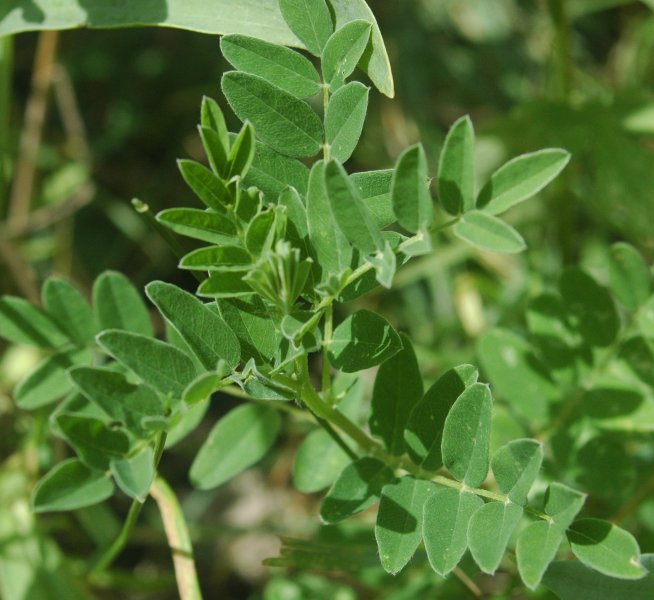 Astragalus can be thought of as “poor man’s ginseng.” It’s an important tonic herb with numerous uses, but is not as widely known in the West as ginseng. The roots of astragalus have been used in Chinese medicine to strengthen the wei chi or defensive energy of the body, and modern research has demonstrated that astragalus has potent immune enhancing activity.
Astragalus can be thought of as “poor man’s ginseng.” It’s an important tonic herb with numerous uses, but is not as widely known in the West as ginseng. The roots of astragalus have been used in Chinese medicine to strengthen the wei chi or defensive energy of the body, and modern research has demonstrated that astragalus has potent immune enhancing activity.
A number of ingredients in astragalus contribute to its benefits. These include bioflavonoids, choline and astragalan B—a polysaccharide that works like the polysaccharides in Echinacea to stimulate the immune system. It binds to viruses, weakening their defenses and allowing the immune response to take over. Astragalus is also known to increase interferon production, thus enhancing T-cell activity and resistance to viral infections.
Astragalus is also an adaptogen, meaning it reduces stress responses in the body. Since stress weakens the immune system, this has the net effect of strengthening the immune response.
Traditionally cooked with rice or used in soups and stews during the winter to promote health, astragalus is a mild and safe remedy for children, adults, and the elderly. It can be taken throughout the winter months to ward of infection, especially in cold climates.
Medicinal Mushrooms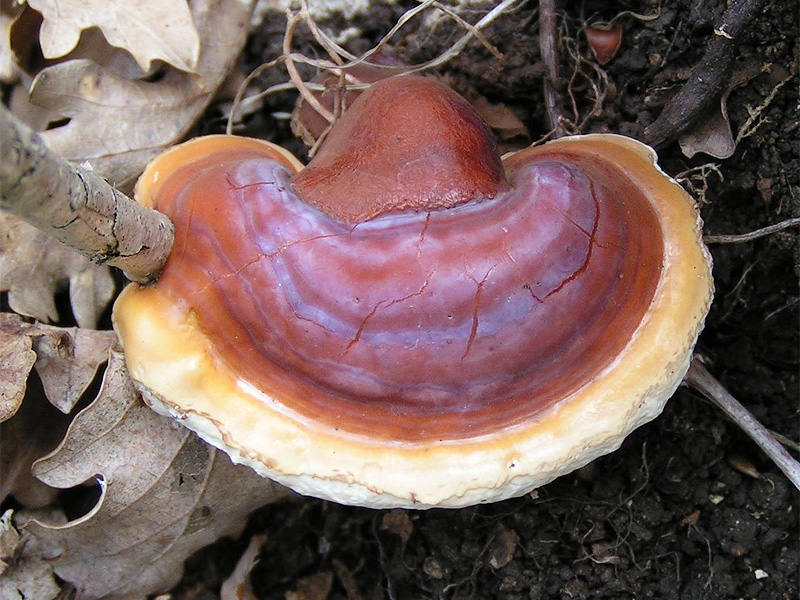
Many fungi, including cordyceps, reishi and maitake, contain polysaccharides that stimulate the immune system. Cordyceps, a fungi from China, increases production of those all-important T-cells and B-cells and has a powerful tonic effect on the whole body. It strengthens the lungs and kidneys, increases energy, and reduces stress. It even protects genes by helping to repair DNA.
Reishi and maitake mushrooms help to activate macrophages. Reishi increases natural killer cell activity, restores normal T-cell function, and increases interferon production. Maitake has been used for centuries to prevent cancer. Both have been shown to help modulate the immune system (bring it into balance), making them potentially beneficial for autoimmune disorders. They have antioxidant properties, help lower blood pressure, and inhibit platelet aggregation in the circulatory system (which causes blood clotting).
All three of these fungi, cordyceps, reishi and maitake, are very safe remedies and can be used by people of all ages throughout the cold and flu season. Besides preventing and treating common colds and flu, they have potential benefits in immune diseases like cancer, AIDS, asthma, allergies, pneumonia and low resistance.
Elderberry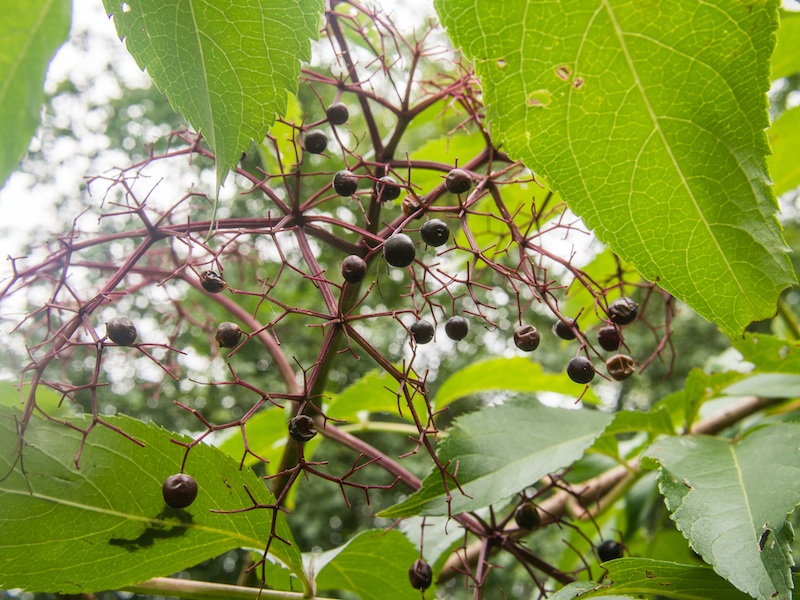
Elderberries have long been used to fight the common cold. In England, a teaspoon of syrup made from elderberries was taken daily to prevent sickness during the winter. Modern research shows that this practice has merit. Elderberries are not only high in the immune enhancing vitamins A and C; they also inhibit viral infections. This makes them an excellent choice for preventing colds and flu.
Probiotics.jpg)
Probiotics are the friendly bacteria found in our digestive tract. As discussed earlier, these microbes are part of our immune system, inhibiting both fungal and bacterial infections. A good probiotic supplement can provide an extra boost to your immune system.
Vitamin D3
The "Sunshine Vitamin" is so named because when our skin is exposed to sunlight, the body converts cholesterol into vitamin D—an important fat-soluble vitamin that assists in the utilization of calcium. But, vitamin D does much more than support the structural system. In recent years research has shown that it is vitally important in maintaining immune function. In other words, when you are deficient in vitamin D you are more prone to getting sick, whereas when you have plenty of vitamin D in your system, your immunity is strong and you are more resistant to illness.
 Vitamin D3 deficiency is the primary nutritional deficiency in North American diets. Many people do not get enough exposure to sunlight, especially in the winter months. Getting adequate intake of vitamin D3 may be helpful in combating many chronic diseases. Insufficient levels of vitamin D have been linked to high blood pressure, periodontal disease, depression, schizophrenia, seasonal affective disorder and autoimmune diseases.
Vitamin D3 deficiency is the primary nutritional deficiency in North American diets. Many people do not get enough exposure to sunlight, especially in the winter months. Getting adequate intake of vitamin D3 may be helpful in combating many chronic diseases. Insufficient levels of vitamin D have been linked to high blood pressure, periodontal disease, depression, schizophrenia, seasonal affective disorder and autoimmune diseases.
Vitamin C
A water-soluble vitamin, vitamin C must be obtained daily from our diet because the human body is unable to make it on its own. Vitamin C is a powerful antioxidant that works inside and outside of cells. Although research on the subject is mixed, there are studies suggesting that adequate intake of vitamin C helps prevent (and possibly speed recovery from) the common cold. Since vitamin C is primarily found in fresh fruits and vegetables, which are less plentiful in the wintertime, supplementation with vitamin C during the winter months only makes sense. These aren’t the only herbs and nutrients that can strengthen your immune system. Zinc, vitamin A and ginseng are just a few of the other options.
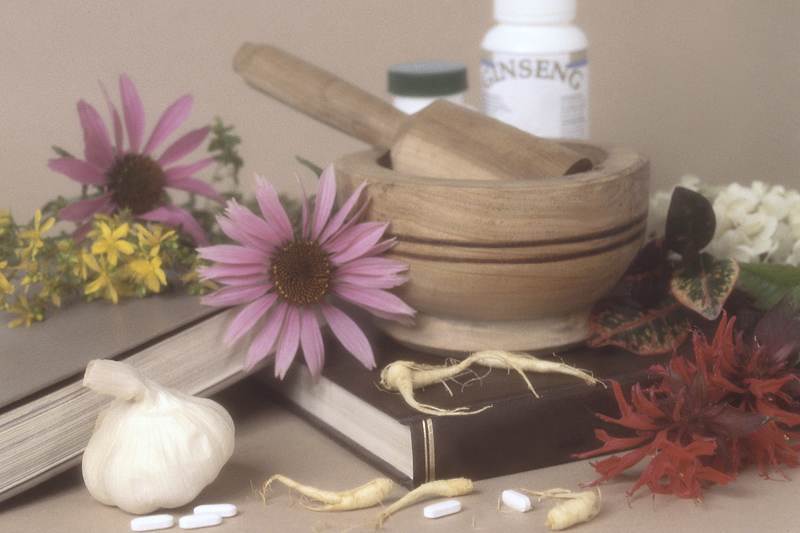 Formulas for the Immune System
Formulas for the Immune System
Single remedies are great, but why not get the benefits of multiple immune enhancing herbs and nutrients in one formula? Formulas containing several of these herbs and nutrients can boost the immune system to help it fight off colds or even prevent them. These blends act as non-specific immune stimulators. These blends boost white blood cell count and enhance antibody and white blood cell activity. This can enhance the body’s natural ability to destroy viruses, bacteria, fungus and even cancer cells. They can also be helpful for problems as simple as warding off a cold in the early stages or as difficult as dealing with serious infections like pneumonia.
One of the formulas I really like is Immune Stimulator from Nature's Sunshine. There are also some good blends of medicinal mushrooms, such as cordyceps, reishi and miatake. Another formula is one I make myself called Children's Composition which contains yarrow, elderflower and peppermint. You can find this and other recipies in our forthcoming book Modern Herbal Dispensatory.
